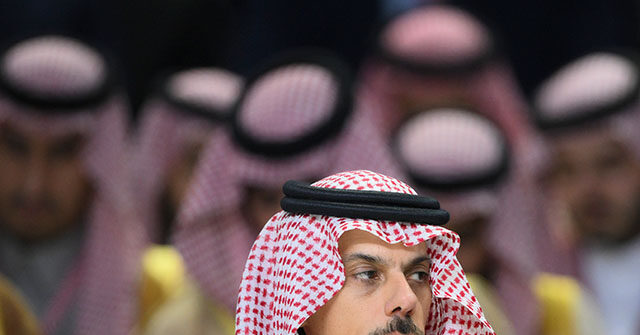The inaugural meeting of the “International Alliance to Implement the Two-State Solution,” hosted by the Saudi Arabian government, marked a significant diplomatic development aimed at formalizing the establishment of a Palestinian state. Saudi Foreign Minister Prince Faisal bin Farhan took the opportunity to accuse Israel of “genocide” in response to the military operations against terrorist organizations like Hamas and Hezbollah. While the Biden administration sent a State Department envoy to the meeting, reports suggest that Washington’s involvement was not particularly prominent in this instance. This coalition appears to signify a shift in Saudi Arabia’s foreign policy, positioning itself in opposition to Israeli self-defense efforts against jihadist groups.
Under the Trump administration, Saudi Arabia had advanced its anti-terrorism cooperation with the United States, exemplified by the establishment of the Global Center for Combating Extremist Ideology in 2017, and engaged in military action against the Iran-backed Houthis in Yemen. However, following President Biden’s election, Saudi relations with the U.S. deteriorated, with Biden labeling the kingdom a “pariah” state. During Biden’s attempt to mend fences with the Saudi leadership in 2022, notable skepticism emerged, resulting in local speculation about the Crown Prince’s perceptions of Biden’s capabilities.
As the geopolitical landscape evolved, Crown Prince Mohammed bin Salman (MBS) initially maintained an openness toward potential normalization with Israel. This stance drastically changed following the brutal Hamas attack on October 7, 2023, which resulted in the loss of approximately 1,200 civilian lives and severe humanitarian crises. In the aftermath, MBS publicly demanded the establishment of a Palestinian state with Jerusalem as its capital—an assertion he had not previously emphasized in discussions regarding Israel.
The official announcement of the “Global Alliance to Implement a Two-State Solution” coincided with the United Nations General Assembly in late September. Prince Faisal criticized Israel’s military responses, deeming them as catastrophic, and articulated the stance of the alliance against the loss of civilian lives and the use of war tactics such as starvation. Notably, his comments lacked condemnation of the explicit genocidal rhetoric from Hamas and Hezbollah leaders. Despite claims that nearly 90 countries attended the summit, details regarding actionable outcomes were sparse.
Saudi Arabia’s current diplomatic posture represents a striking pivot from its previous approach, particularly during the Trump administration, where there was optimism regarding improving relations with Israel. In interviews preceding the conflict, MBS underscored the importance of the Palestinian issue and seemed more inclined to consider relations with Israel without predicating them on the creation of a Palestinian state. However, this position has shifted in light of recent events, as MBS is now vocal about the need for a Palestinian state and the immediate cessation of military actions resulting in civilian losses.
Following the latest developments, MBS reiterated his commitment to establishing a Palestinian state with East Jerusalem as its capital during various international forums, including a meeting of the BRICS coalition. This commitment also reflects an improvement in Saudi Arabia’s relationship with the Palestinian Authority, which had been strained previously. Reports indicate that Saudi Arabia has resumed funding for the Palestinian Authority, suggesting a re-engagement with Palestinian leadership even as Riyadh maintains a clear distance from Hamas. This evolving dynamic reveals the complexities of Middle Eastern diplomacy and the shifting allegiances in response to regional crises.

